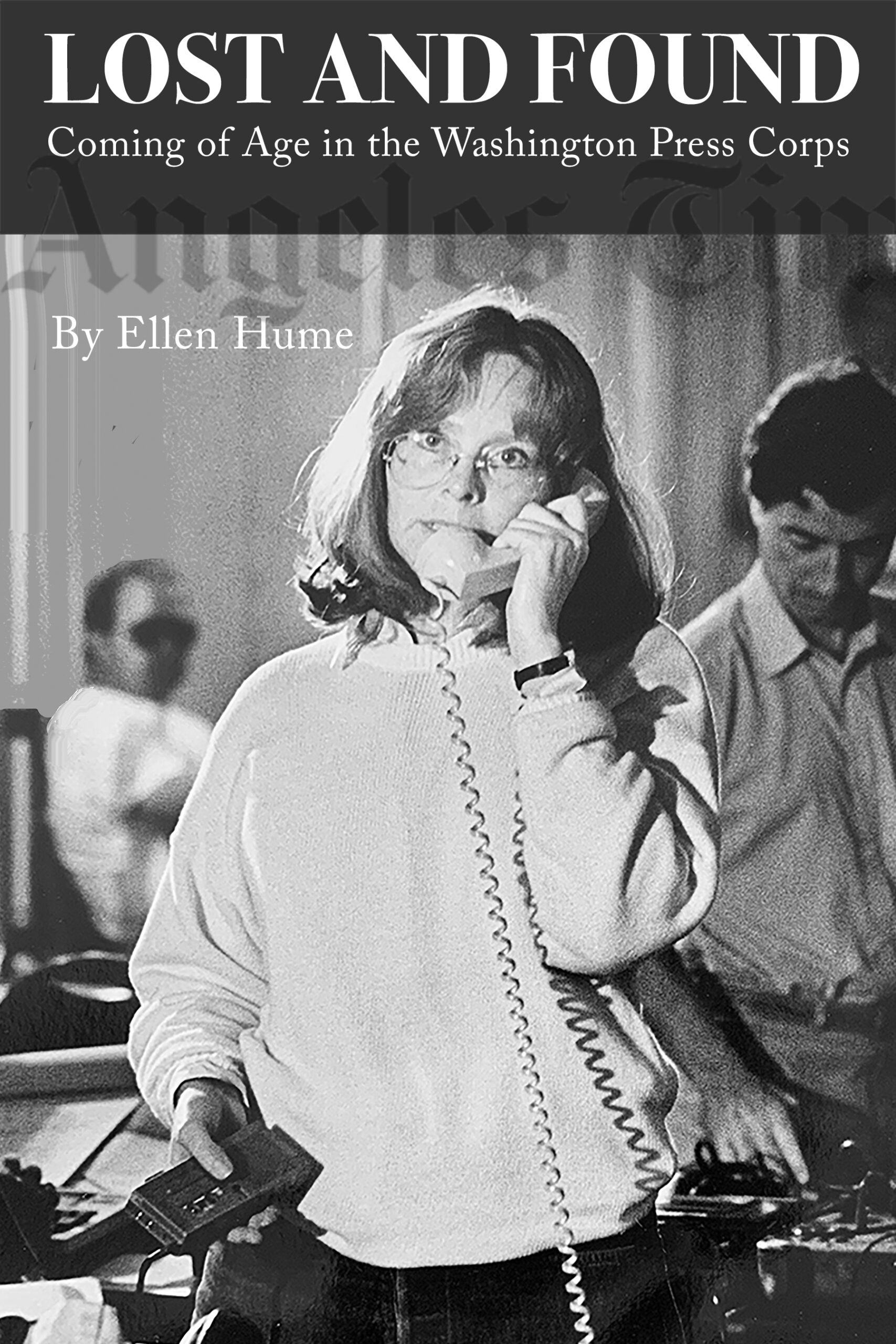
Fun and Games in the Washington Press Corps

You can order it from your independent bookstore, from Amazon.com, or from Bookbaby…


You can order it from your independent bookstore, from Amazon.com, or from Bookbaby…

I’m happy to see this new initiative that helps us identify the real journalists who offer trusted work, with accountability. Now we need to get more media literacy, so consumers will know to use tools like this Transparency Tracker to select reality-based, fact-based journalism providers instead of falling prey to the propagandists, newsbots and conspiracy theorists who are making money or gaining power by duping us into spreading and believing stuff that isn’t true.
Most importantly, tools like this confirm that some content is much more trustworthy than other content You CAN figure out what is useful news from what is propaganda. Don’t be left powerless by cynicism that tells you everything is a scam. If you decide that, you will never be able to hold the bad guys to account.
Journalism has never been, and will never be, perfect. But it is a tragedy when people don’t understand who is working in the public interest, to help empower them with information, versus all those jerks who are trying to sell them something for their own amusement or ill-gotten gains.

“I am seeing this so you don’t have to!”
This 2012 rebuke from war correspondent Marie Colvin to her London editor, as she returned to die in the horrors of Syria, is the best description of journalism I ‘ve ever heard. “A Private War,” Matt Heineman’s morally fierce new film about Colvin, reminds us that some people give up everything, trying to give us the truth.
How terrible then, for so many Americans to live in a world of deliberate lies. It is inevitable that the Trump-Fox News bubble will burst, as our country faces the real impacts of climate change, Russian cyberwarfare, economic inequality and Republican corruption. I feel sorry for the genuine conservatives out there who have made this devil’s bargain with Trump. If history is any guide, the gains they have made will be threatened, if not reversed, by the coming wave of revulsion.
While Colvin’s retort was about war, it could apply also to the tedious journalism of court documents, transcripts, government fine print, and data of all kinds that reporters plow through to figure out what’s true. The public can see this evidence for themselves, if they want to do this investigation of documents in plain sight. But who wants to take the time? So thank goodness nonprofit and for-profit mainstream reporters all over the world, including The New York Times and Washington Post, Propublica, The New Yorker and the Atlantic—are doing this for us. Check out the Post’s summary Dec. 3 report about the Mueller investigations, based on actual court convictions and guilty pleas.
I won’t be going to see the film about Gary Hart, not because I think the press was always terrific in covering him, but because I think they did an honest job outing his hypocrisy and weirdness. Matt Bai, who wasn’t there at the time and has a gauzy view of how Hart might have served as president, has done a disservice to history. Hart was a hypocrite and a liar. He was no Donald Trump, to be sure. But looking back to say he would have been a great president, and setting it up to blame the media, is a waste of everyone’s time.
Instead see “A Private War,” where an imperfect—crazy and sometimes out of control—journalist does the job. That is the real story.
https://www.vanityfair.com/news/politics/2012/08/marie-colvin-private-war

My friend Seth Effron in North Carolina has been handed a dream assignment: figure out how to repurpose some campus buildings to help serve the cause of good journalism. Here is my dream for his project:
Create the one and only tech hub devoted to creating journalism apps that are actually in the interest of the journalists and the public, instead of the advertiser/propagandists or those simply measuring and promoting what is “popular” and “trending” on the Internet? In other words,use part of your space for hackathons or steady work where developers would make new apps or programs that would create:
–A better word processing/editing program than Word for text, plus affordances that enable linkages and embedded video/photos more easily, including CREDITS
–A true micropayments system so that people would pay pennies (dimes?) for articles, where the cost of processing the payment would be minimized so the payments could be truly low cost. This could help support the authors rather than the thieves like Huffington Post.
–A pedigree branding system for journalism pieces that is like a “good housekeeping seal of approval” or the logo for “free trade” coffee/chocolate, which would be signifying voluntary membership by journalists/content providers, asserting they are working according to certain ethical standards. This would help consumers find and value this content over less reliable content.
— an “origin” tag, brand or logo for each participating piece of information moving through the food chain that would enable viewers to know where it originally came from. It could be included in the branding tag (above), put on as a news flash/photo/video originates and that continues to be embedded in the news content as it works through the food chain
–tags, brands or imbedded logos that indicate some of the important sources of the info (tags that are links perhaps to the original documents/videos)
I kept hoping when I was managing a Knight Foundation Challenge grant at the MIT Media Lab that some of the students would be interested in such projects, but they were more interested in non-journalism tools and practices, building devices without much regard to the actual social need for their functions. Maybe in North Carolina Seth can turn that around, and start with the functional challenges to support good journalism from all sources.